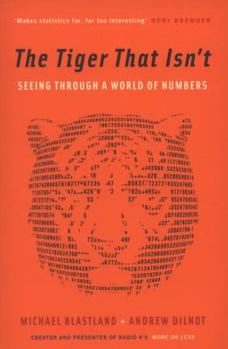The Tiger That Isn't: Seeing Through a World of Numbers
Select Format
Select Condition 
Book Overview
A painless introduction to the maths of the real world by the team who created and present the hugely popular BBC Radio 4 series More or Less .
Format:Paperback
Language:English
ISBN:1846681111
ISBN13:9781846681110
Release Date:July 2008
Publisher:Profile Books(GB)
Length:226 Pages
Weight:0.46 lbs.
Customer Reviews
1 rating
We all know more than we think we do or not
Published by Thriftbooks.com User , 14 years ago
"We all know more than we think we do" is the first line of this book. The authors are reassuring the reader that there is no need to be afraid of numbers, despite how confusingly figures and statistics are often presented, particularly by politicians and the press. In terms of presenting numbers, this is about the meaning ascribed to numbers rather than how they are displayed visually. But if we reverse that first line - "we think we know more than we do" - we are all guilty of that too. The many practical examples of how numbers are misinterpreted, both accidentally and deliberately, ring true with personal experience. Don't be afraid, be very afraid! However, this book isn't about beancounter-bashing but is an affirmation of the value of numbers when handled with care and humility. This is a very simple book and anyone who studied economics or mathematics to a reasonable level will (think they) know it all. For the rest of us, this is catch-up time! Fortunately, there are hardly any numbers in the book and it is more about analysing real-life examples, including well-known news stories about climate change, speed cameras, school league tables, health scares and other topics. In that way, "The Tiger That Isn't" is in a similar vein to other recent popular economics books like Freakonomics or Fooled by Randomness, albeit less sensational than the former and more accessible than the latter. The twelve chapters each show a different way to spot and avoid the abuse of numbers - there is a one page summary at the back of the book that is shorter and more informative than this review!






